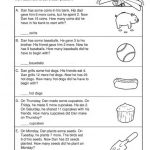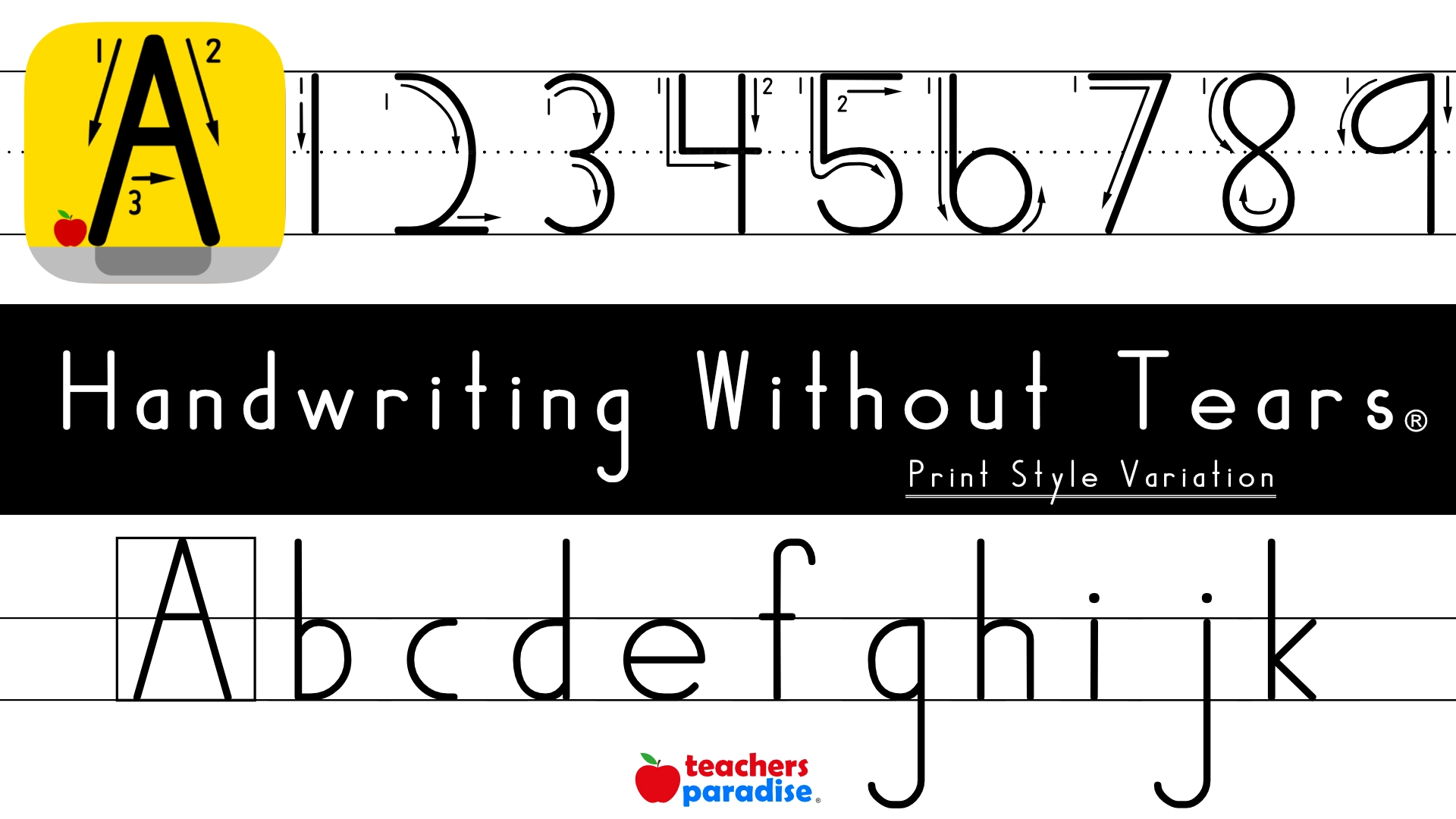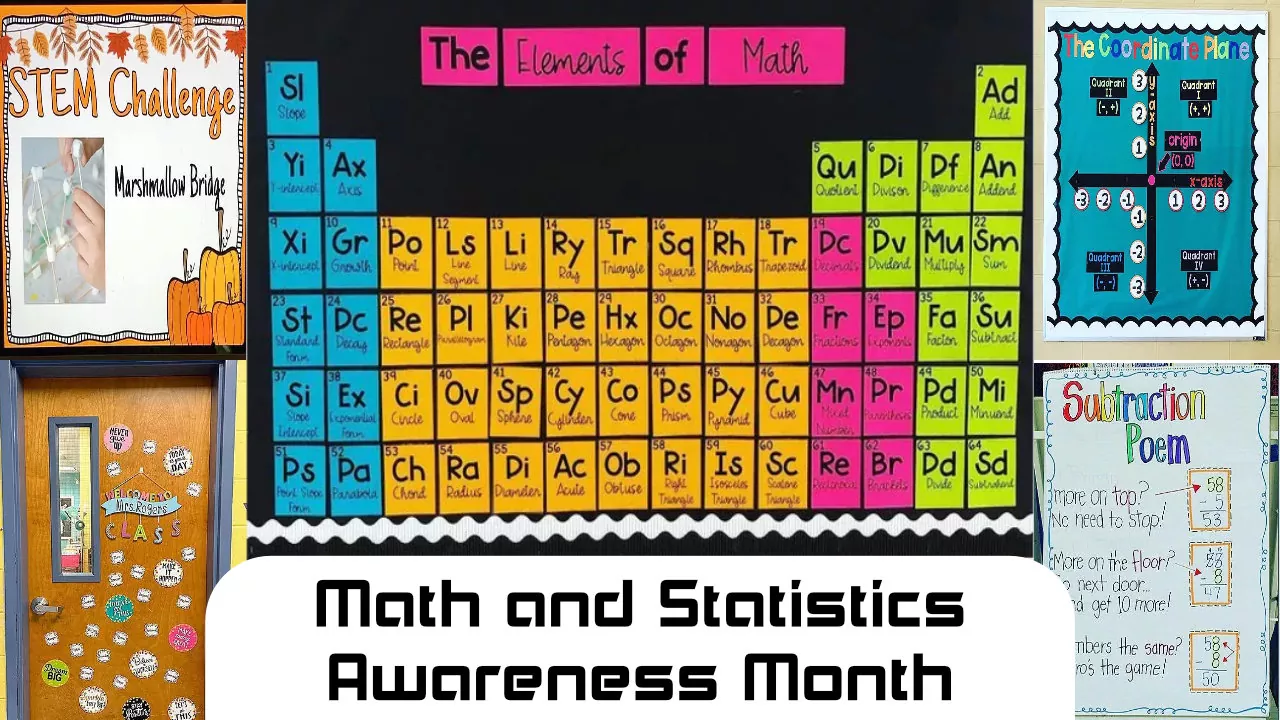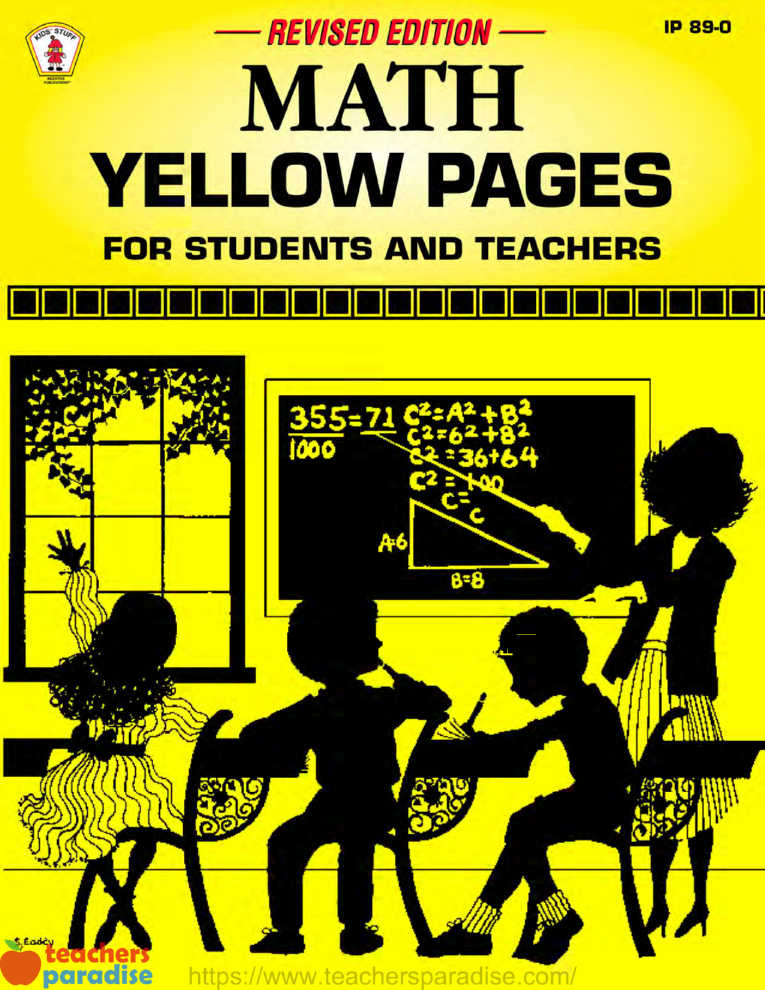Comprehension Crosswords – Grade 6
Table of Contents
Mathematicians – 2
James A. Garfield – 4
Edgar Allan Poe – 6
Antonio Vivaldi – 8
Robert Oppenheimer – 10
The Loch Ness Monster – 12
The Great Depression – 14
Child Labor –
16
The History of Computers – 18
Sculpture – 20
Sports Training – 22
Conservation: Problems and Solutions – 24
Writing Realistic Stories – 26
Writing Thank-You Letters – 28
Puzzle Solutions –
30-32
ISBN 1-56472-190-6
WORKSHEET & Sample PDF Activity
[adinserter block=”2″]
Sample PDF Activity
[adinserter block=”3″]
Mathematicians
What is a mathematician? It is a person who is skilled in mathematics, which is the study of relationships among quantities, magnitudes, and properties, and of logical operations by which unknown quantities, magnitudes, and properties may be deduced. The contributions of famous mathematicians can be seen in areas such as astronomy, philosophy, law, politics, engineering, physics, religion, and teaching.
The development of the science of mathematics began with the Egyptian and Babylonian civilizations. By 1800 BC, a decimal numeration system had been developed. People were consistently using addition and multiplication. Fractions were written in the same format that we use today, and mathematicians could even find the roots of certain cubic equations. It wasn’t until the Greek civilization in the 6th century BC, however, that individuals were recognized for their mathematical contributions. Thales of Miletus and Pythagoras of Sámos founded a logical structure of definitions, axioms, and proofs for math. The Pythagorean Theorem is still taught in geometry. Other Greek mathematicians were Democtitus, who developed the atomic theory of the universe, and Archimedes, who wrote important works on plane and solid geometry, arithmetic, and mechanics. Euclid, another Greek, was famous for his writing of the Elements. Euclid’s Elements was used as a text for 2,000 years, and a modified version of its first few books forms the basis of high school instruction in plane geometry today.
Over the next centuries, most of the development of mathematics had to do with writing, translating, utilizing, and teaching existing information. As more and more people began to move around the world, they discovered the methods of other countries and brought them back to their native lands. In the 12th century AD, Leonardo Fibonacci was one such person. When Fibonacci was about 20, he went to Algeria, where he began to learn Indian numerals and Arabic calculating methods. He used this knowledge and he supplemented it during more extensive travels. Fibonacci used this experience to improve on the commercial computing techniques he already knew.
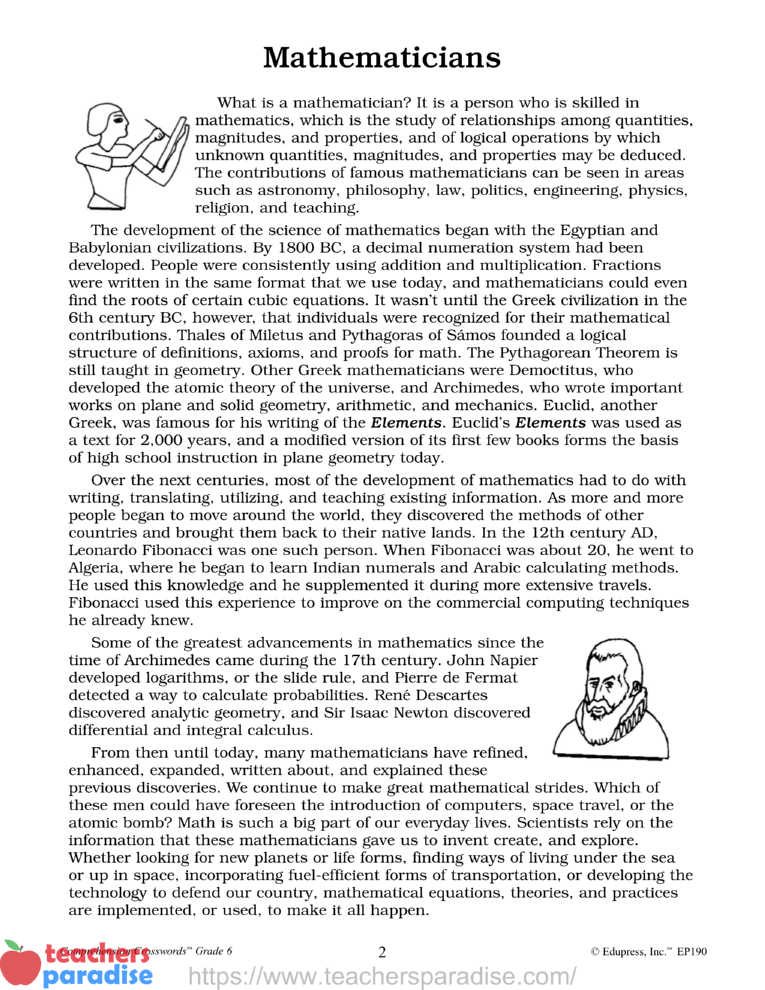
Some of the greatest advancements in mathematics since the time of Archimedes came during the 17th century. John Napier developed logarithms, or the slide rule, and Pierre de Fermat detected a way to calculate probabilities. René Descartes discovered analytic geometry, and Sir Isaac Newton discovered differential and integral calculus.
From then until today, many mathematicians have refined, enhanced, expanded, written about, and explained these previous discoveries. We continue to make great mathematical strides. Which of these men could have foreseen the introduction of computers, space travel, or the atomic bomb? Math is such a big part of our everyday lives. Scientists rely on the information that these mathematicians gave us to invent create, and explore. Whether looking for new planets or life forms, finding ways of living under the sea or up in space, incorporating fuel-efficient forms of transportation, or developing the technology to defend our country, mathematical equations, theories, and practices are implemented, or used, to make it all happen.
Mathematicians Crossword
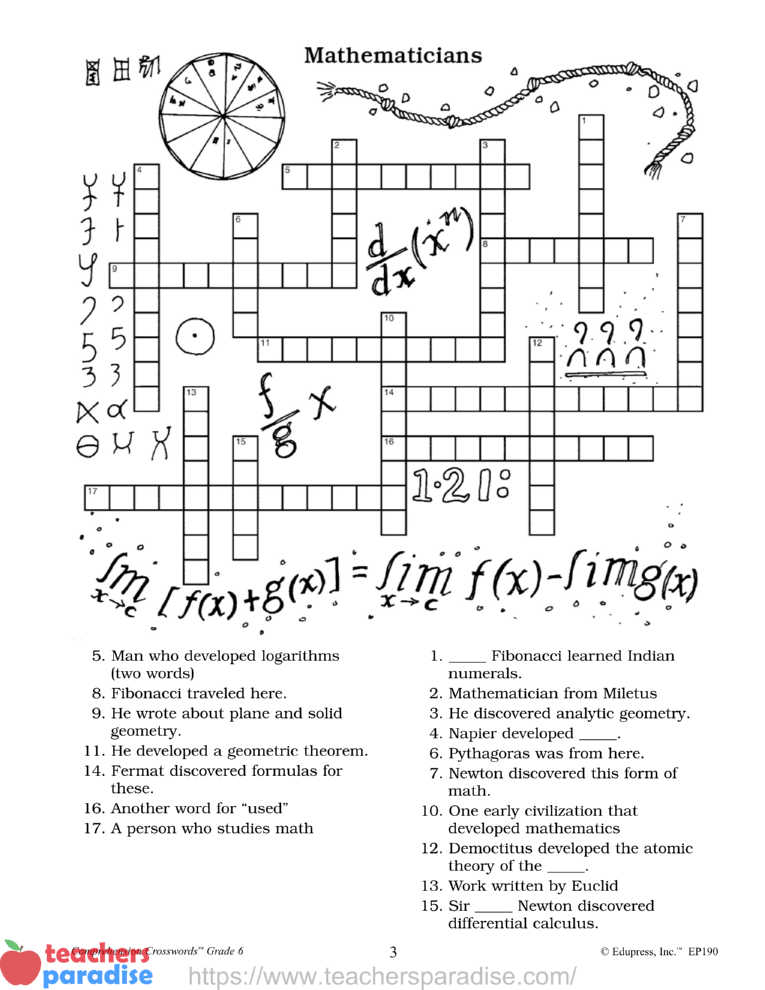
Across
- Man who developed logarithms (two words)
- Fibonacci traveled here.
- He wrote about plane and solid geometry.
- He developed a geometric theorem.
- Fermat discovered formulas for these.
- Another word for “used”
- A person who studies math
Down
- _ Fibonacci learned Indian numerals.
- Mathematician from Miletus
- He discovered analytic geometry.
- Napier developed _.
- Pythagoras was from here.
- Newton discovered this form of math.
- One early civilization that developed mathematics
- Democtitus developed the atomic theory of the _.
- Work written by Euclid
- Sir _ Newton discovered differential calculus.







